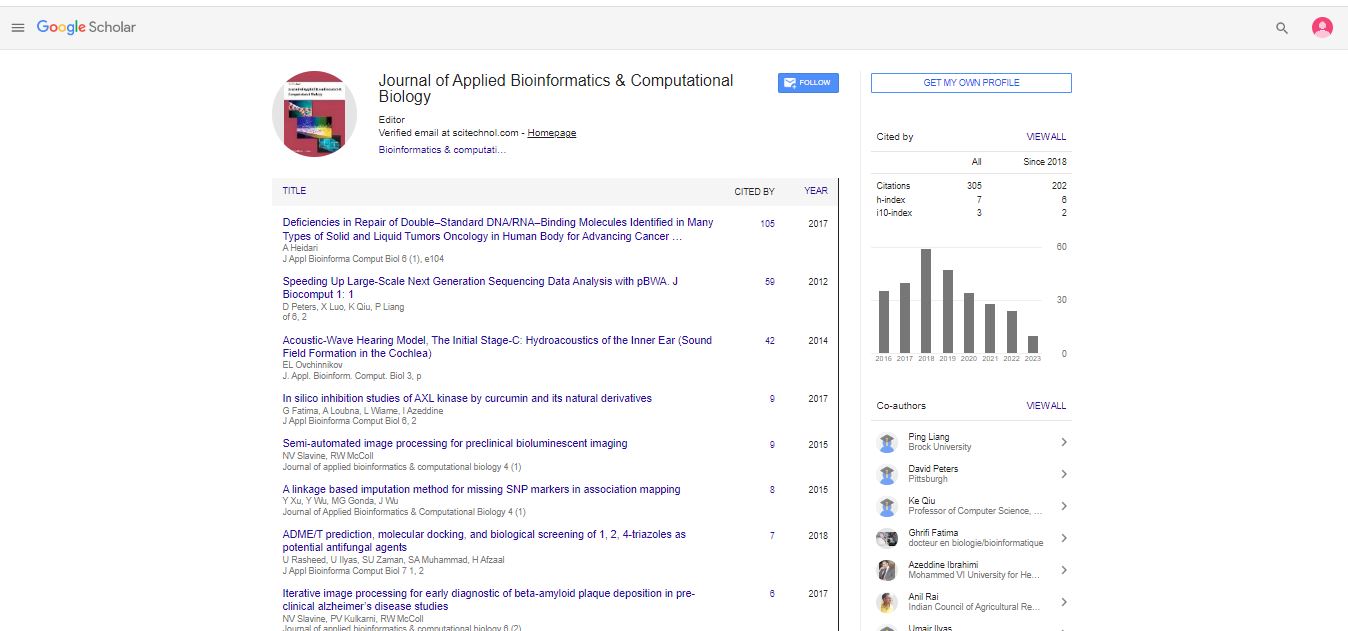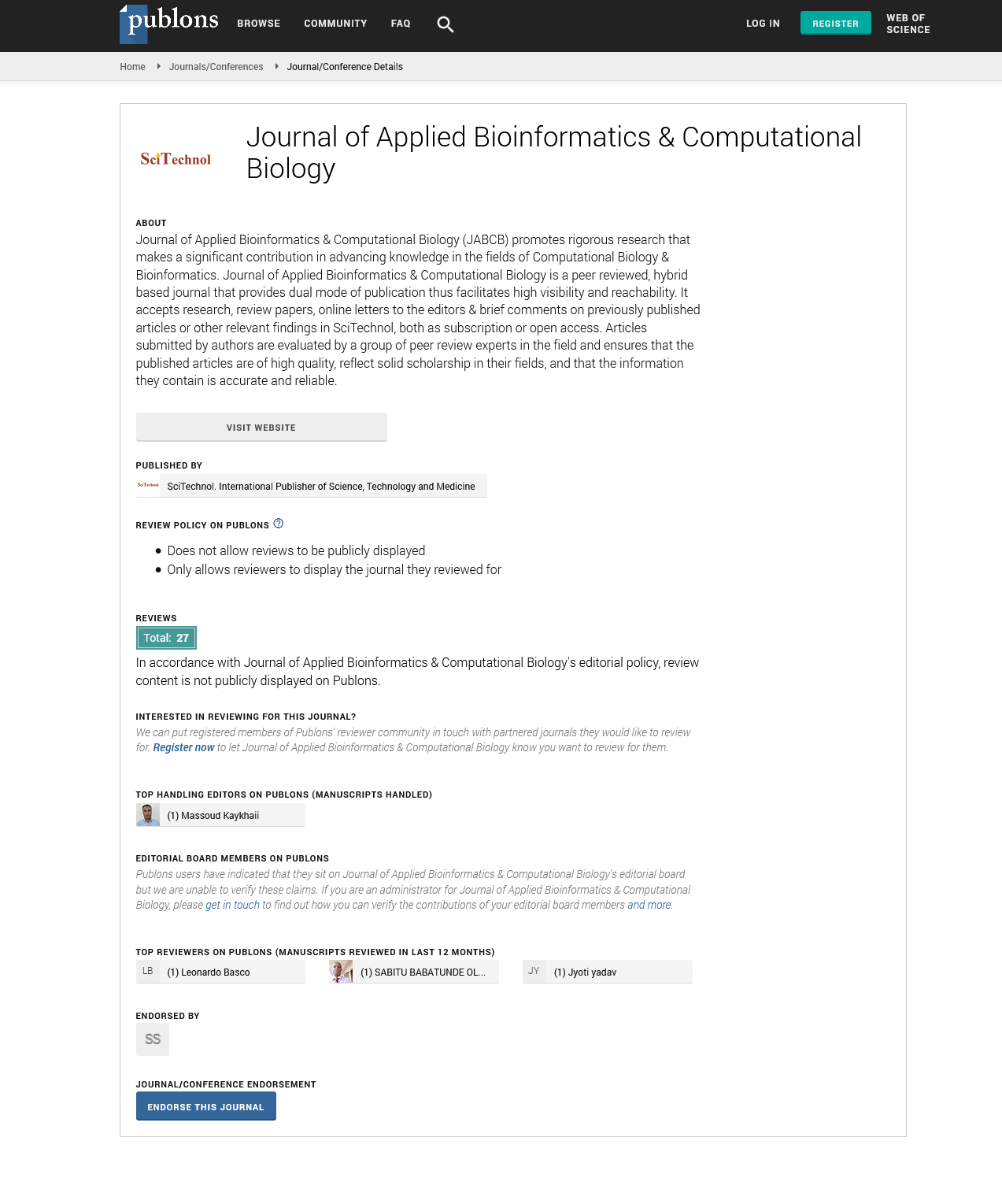Proteomics Analysis of Proteins Associated With Urinary Tract Infections
Abdullah Essa Alsubhi, Ghadah Alsharif and Ahmed A. Mirza
King Abdulaziz University, Saudi Arabia
: J Appl Bioinforma Comput Biol
Abstract
Background: Gram-negative bacteria is a major cause of urinary tract infections (UTI) and particularly Escherichia coli (E. coli), which is the causative agent of 80-90% of community-acquired infections, approximately 40% of nosocomial UTIs and 25% of recurrent infections. Proteomic is used to analyze and identify changes in protein profiles as biomarkers in pathological setting and can similarly be used to identify protein fingerprints for bacterial infections; proteins such as haemolysin and adhesion protein P are highly expressed in different strains of E. coli. Here, we compared protein profiles of E. coli from different UTI patients to identify possible unique protein signatures as biomarker candidates for future studies. Methods: Protein from bacterial pellets cultured from urines samples from seven E. coli-associated UTI patients were extracted by sonication, separated using1D- and 2D-gel electrophoresis, analyzed using liquid chromotography mass spectrometry LC/ MS, then matched against a known protein database. Results: Many differences were observed in protein profiles of E. coli isolates in both 1D SDS-PAGE and 2DGE. Two bacterial proteins identified as possible candidate biomarkers were membrane protein A (OmpA) found in gram negative bacteria and RNA polymerase-binding transcription factor DksA mostly found in E. coli. Conclusion: Proteomics can be used to identify unique proteins that can be part of a standard proteomic profile as possible biomarkers for E. coli-associated UTI. We identified two such proteins, OmpA and DksA, as unique candidate biomarkers for further investigation.
Biography
Abdullah Essa Alsubhi completed his Bachelor’s Degree from Umm Alqura, KSA in 2011 and Master’s Degree from King Abdulaziz University, Faculty of Applied Medical Sciences, Department of Clinical Laboratory Science. He has also been working in Saudi Health Ministry for six years. He is working as a practical master research in Aberdeen University, Scotland.
 Spanish
Spanish  Chinese
Chinese  Russian
Russian  German
German  French
French  Japanese
Japanese  Portuguese
Portuguese  Hindi
Hindi 
